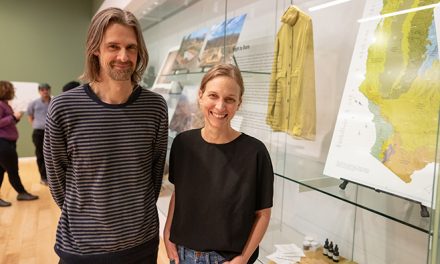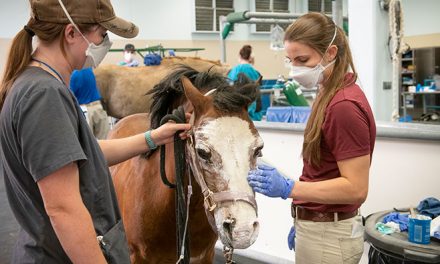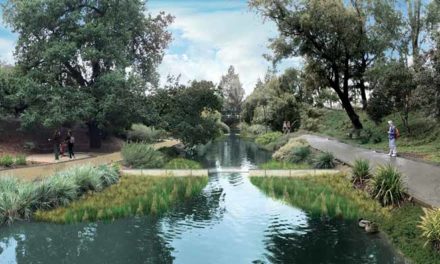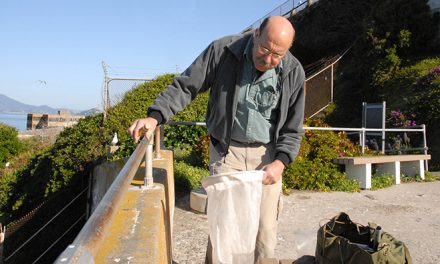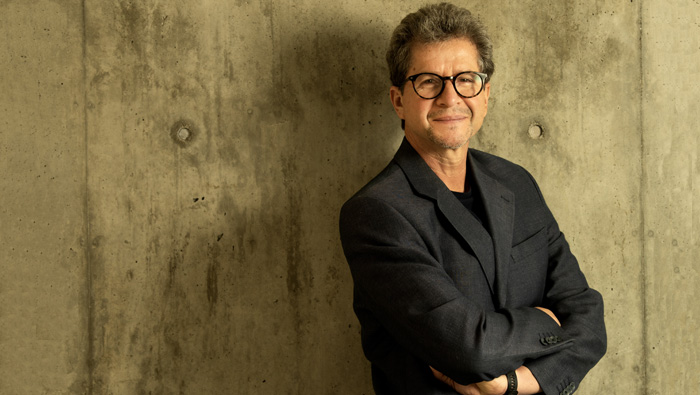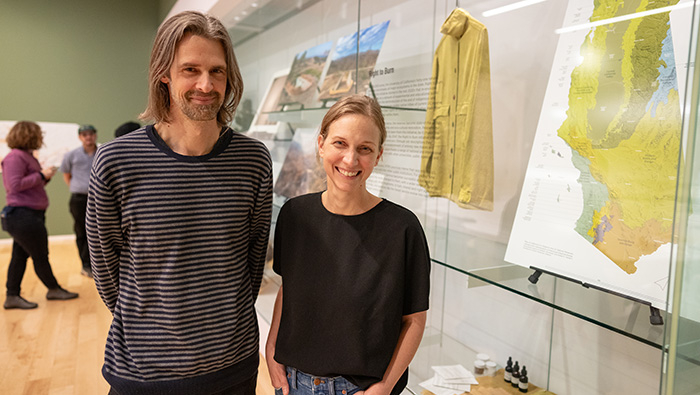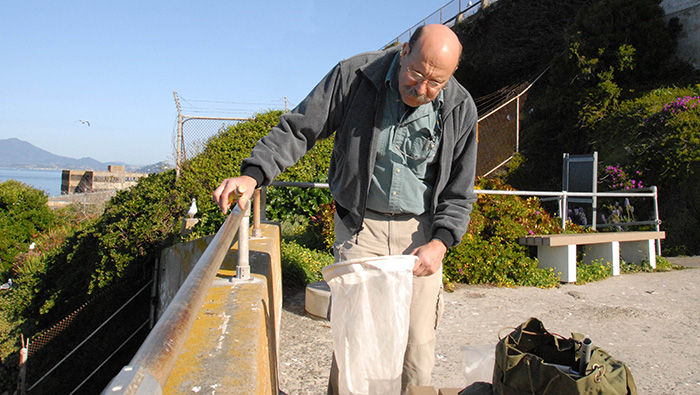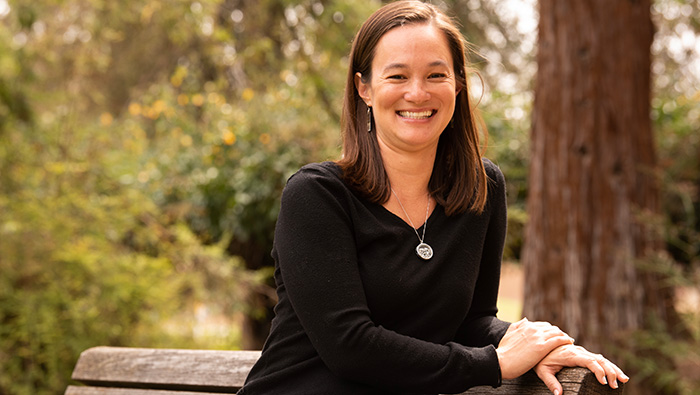
Meet the Evolutionary Biologist
Rachael Bay uses genetic evolution to predict the impact of climate change.
“All of our work focuses on the underlying evolutionary processes,” said Bay, an assistant professor in evolution and ecology. “Fundamentally, what we do every day is look at DNA sequences. From those millions of DNA sequences, we can learn something about the variation among individuals and how that variation might evolve in the future.”
Bay was born in Montana, and despite living in a landlocked state, discovered her love for the ocean through a summer science camp. “I was introduced to marine organisms and decided that’s what I wanted to do.” Her passion for marine life led her to the University of Miami, where she assisted in various research projects on coral reefs. From there, Bay attended graduate programs, earning an M.S. from Dalhousie University in Nova Scotia and Ph.D. from Stanford University and eventually landed at UC Davis. Today, she studies evolution, with climate change in mind.
Recently, Bay returned to American Samoa and the Cook Islands to resample the coral reef sites she’d previously studied during her time getting her Ph.D. Several marine heat waves over the past decade have increased coral reef mortality rates. “It’s very sad to see the decline of coral reefs,” Bay explained, “but also it’s the opportunity for natural selection. Natural selection only works when you have differential survival of different individuals.”
With a colleague, Anya Brown, Bay is setting up a long-term research project in the Cook Islands in collaboration with a nongovernmental organization. “We’re heading out there in March to establish coral nurseries that can serve as experimental gardens where we can do experiments on thermal tolerance.” She added that they hope to determine why coral reefs differ in their thermal tolerance levels. Bay began studying coral reefs in 2010 and has seen a drastic change in the number of corals on the reef. “I see these really strong and really rapid effects of climate change not just within my lifetime, but within my professional career.”
Despite the urgency of her work, Bay said she remains hopeful. “While I agree that the effects of humans on natural systems are often negative, I view adaptation as innately positive — sometimes evolutionary processes can help these organisms survive in an environment they cannot currently survive in.”

